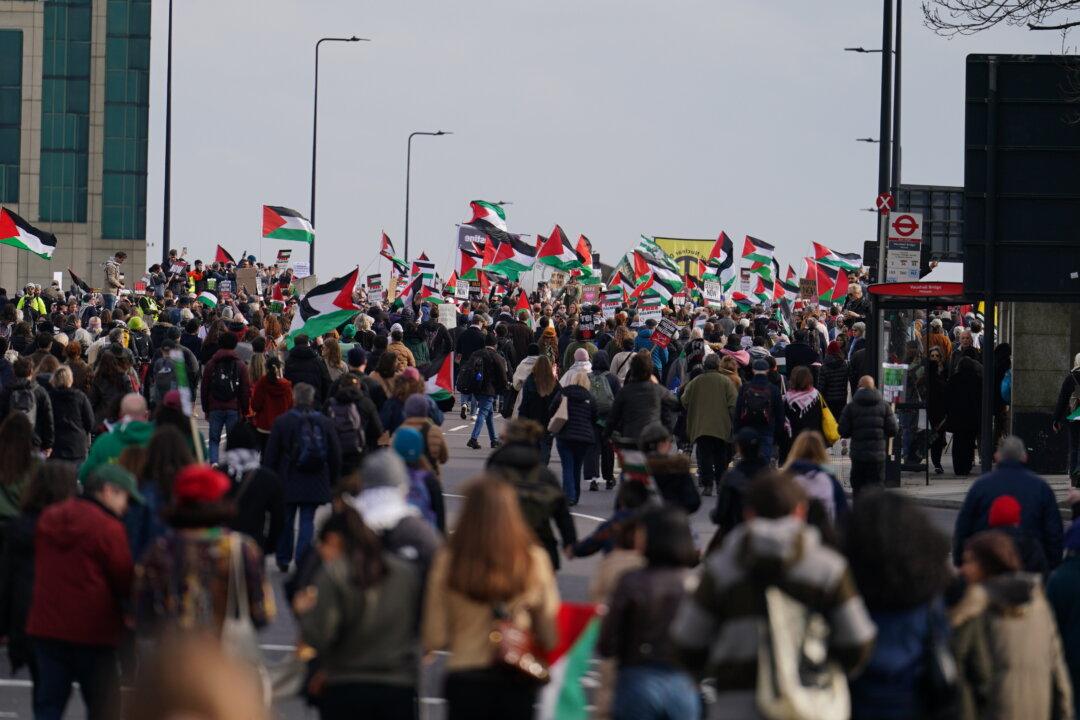The cost of policing Gaza-related protests in London has reached over £32 million, the Metropolitan Police said on Friday ahead of another major demonstration on Saturday.
The march, organised by the Palestine Solidarity Campaign (PSC), is the fifth major demonstration of the year so far, the Met said.





